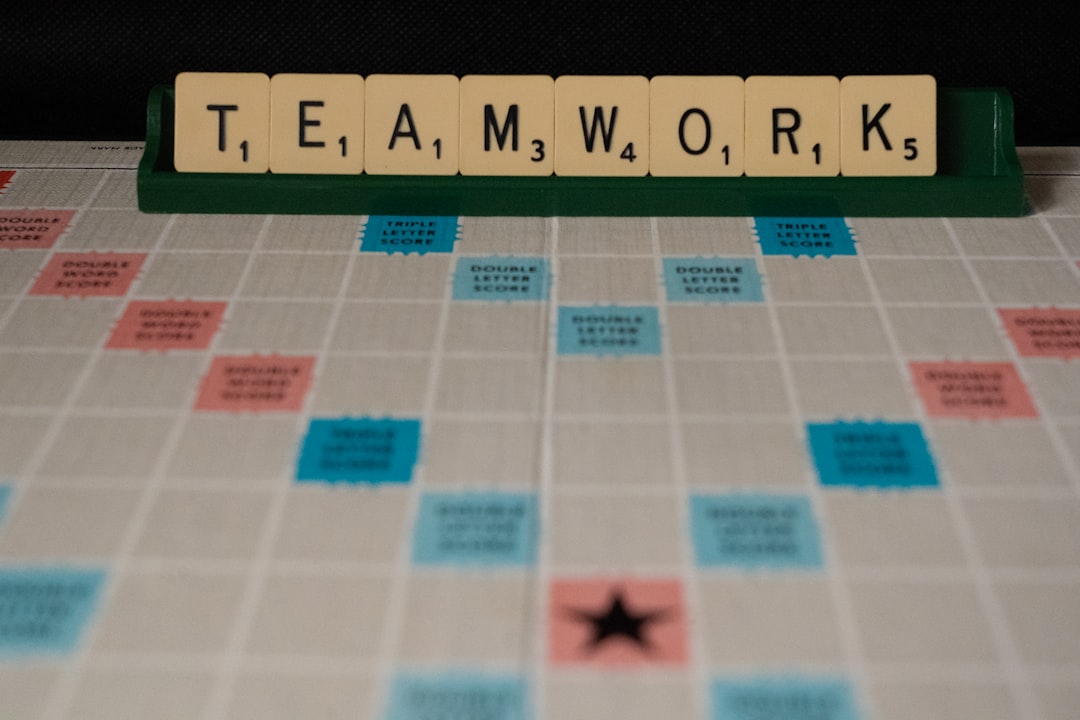Building a Global Nomad Network Through Meetups

Introduction
The digital nomad lifestyle is defined by mobility, flexibility and the desire to work from anywhere in the world. While technology makes it possible to log in from a beach in Bali or a co‑working space in Lisbon, the human need for connection remains unchanged. A strong, supportive community can turn a solitary freelance gig into a thriving collaborative network. Meetups are the most effective way to turn scattered individuals into a cohesive global nomad network. This article explains how to design, launch and grow meetups that link nomads across continents, cultures and time zones.
Why Meetups Are the Heartbeat of a Global Nomad Network
Shared Experiences Create Trust
When nomads meet face‑to‑face, they exchange stories that cannot be captured in a Slack thread. A shared coffee, a group hike or a collaborative workshop builds trust faster than any virtual interaction. Trust is the currency that fuels referrals, joint projects and mentorship.
Local Knowledge Becomes Global Value
Each participant brings a unique set of insights about visas, coworking spaces, local customs and hidden gems. By pooling this knowledge, the network becomes a living guidebook that helps members avoid costly mistakes and discover new opportunities.
Momentum Drives Growth
A successful meetup generates buzz. Attendees share photos, post reviews and invite friends. This organic momentum attracts new members, sponsors and partners, turning a one‑off event into a recurring hub of activity.
Laying the Foundations
Define a Clear Purpose
Before any logistics are planned, articulate the core purpose of the meetup. Is it to share remote‑work resources, organize co‑living experiences, host skill‑swap workshops, or promote local entrepreneurship? A concise purpose statement guides every decision and helps attract the right audience.
Identify a Core Organizing Team
A single person cannot manage all aspects of a global meetup series. Assemble a small, dedicated team that covers:
- Community Lead – shapes the vision and maintains the community tone.
- Event Coordinator – handles venue booking, agenda planning and on‑the‑day logistics.
- Marketing & Outreach – creates promotional materials, manages social channels and reaches out to partners.
- Tech & Documentation – sets up registration tools, records sessions and maintains a knowledge base.
Choose team members who are geographically diverse. This ensures cultural sensitivity and allows the team to cover multiple time zones.
Choose the Right Platform for Communication
A central hub where members can discuss, share resources and stay informed is essential. Popular choices include:
- Discord – offers voice channels, topic‑specific text rooms and easy integration with bots.
- Slack – professional feel, searchable history and robust app ecosystem.
- Telegram – lightweight, mobile‑first and works well in regions with limited internet bandwidth.
Pick one platform and create clear channel structures, for example:
- #announcements – official updates only
- #regional‑talk – local meet‑up planning
- #skill‑swap – members offering or requesting expertise
- #travel‑tips – visa, accommodation and transport advice
Planning Your First Meetup
Research the Target Location
Select a city that already has a modest nomad presence or a growing remote‑work ecosystem. Use tools such as Google Trends, Nomad List and local coworking directories to gauge interest. Look for:
- Reliable internet infrastructure
- Affordable short‑term accommodation
- A welcoming expatriate community
- Accessible public transportation
Set a Date and Time
Consider the following factors:
- Local holidays – avoid dates that clash with major celebrations.
- Time zones – if the event includes virtual participants, choose a time that is reasonable for both the host city and the majority of remote attendees.
- Venue availability – popular coworking spaces often book months in advance, so secure the location early.
Choose a Venue That Encourages Interaction
Ideal venues have:
- Open seating or flexible tables that can be rearranged for group activities.
- Good natural lighting and a comfortable acoustic environment.
- Access to power outlets and high‑speed Wi‑Fi.
- Optional catering or a nearby café for refreshments.
If a physical venue is not feasible, consider a hybrid model where a small in‑person group meets in a coworking space while others join via a high‑quality video conference.
Design an Engaging Agenda
A balanced agenda keeps energy high and maximizes value. A typical 3‑hour meetup might look like this:
| Time | Segment | Goal |
|---|---|---|
| 0:00 – 0:15 | Welcome & Icebreaker | Warm up participants and introduce the purpose |
| 0:15 – 0:45 | Community Spotlight | One or two members share a recent project or travel story |
| 0:45 – 1:15 | Skill‑Swap Workshop | Participants break into small groups to teach a skill |
| 1:15 – 1:30 | Break & Networking | Light refreshments and informal conversations |
| 1:30 – 2:00 | Resource Roundtable | Discuss tools, visas, coworking spaces, etc. |
| 2:00 – 2:15 | Action Items & Future Plans | Capture ideas for the next meetup |
| 2:15 – 2:30 | Open Mic & Closing | Give space for spontaneous sharing and thank participants |
Adjust the length of each segment based on the size of the group and the depth of discussion you want to achieve.
Promote the Event
Effective promotion combines organic outreach and paid amplification:
- Community Channels – post the event in the #announcements channel, regional sub‑channels and any existing local nomad groups.
- Social Media – create an eye‑catching graphic, write a concise caption, and share on Instagram, Facebook, LinkedIn and Twitter. Use location‑specific hashtags like #BaliNomads or #LisbonRemote.
- Partner Networks – ask coworking spaces, cafés or local NGOs to share the event with their members. Offer them a speaking slot or logo placement in exchange.
- Email Campaigns – send a short, personalized invitation to the mailing list, highlighting the value proposition and a clear RSVP link.
Manage Registrations
Use a simple, free registration tool such as Google Forms, Eventbrite or Meetup.com. Collect:
- Full name
- Email address
- Current city and home base
- Areas of expertise or topics they want to discuss
- Dietary restrictions (if food is provided)
Set a registration deadline a week before the event to allow for final logistics.
Running the Meetup: From Arrival to Departure
First Impressions Matter
- Greet each participant by name as they arrive.
- Provide a printed agenda and a small welcome packet (stickers, local guide, QR code to the community hub).
- Offer a name badge that includes a fun icon representing their skill or hobby.
Facilitate Inclusive Conversation
- Use a round‑robin approach for introductions to ensure everyone speaks.
- Assign a moderator for each discussion segment who watches the time, invites quieter participants and gently steers the conversation back on track.
- Encourage active listening by asking follow‑up questions that reference earlier comments.
Capture the Moment
- Designate a volunteer to take photos and short video clips (with participants’ consent).
- Record the workshop portions for later sharing on the community platform.
- Summarize key takeaways in a live Google Doc that participants can edit in real time.
Close with Clear Next Steps
- Review the action items captured during the meeting.
- Announce the date, location and theme of the next meetup.
- Invite participants to join a post‑event chat on Discord or Telegram for continued discussion.
Growing the Network Beyond One City
Replicate the Model in New Locations
Once the first meetup proves successful, create a playbook that outlines:
- How to select a host city
- Required budget items (venue, catering, marketing)
- Template agendas and icebreakers
- Sample outreach emails
Share this playbook with community members who express interest in organizing a meetup in their own city. Encourage them to adapt the content to local culture while preserving the core structure.
Foster Regional Hubs
Identify clusters of cities that share geographic or cultural ties, such as Southeast Asia, the Mediterranean or the Pacific Northwest. Appoint a regional coordinator who can:
- Organize quarterly meetups that bring together members from multiple nearby cities.
- Host virtual “regional summits” where each city presents a short showcase.
- Facilitate resource sharing specific to the region (e.g., visa agreements, flight routes).
Leverage Hybrid Events for Global Reach
Hybrid events combine the energy of an in‑person gathering with the inclusivity of virtual participation. To run a successful hybrid meetup:
- Use a high‑quality webcam and external microphone to capture speakers.
- Assign a virtual host who monitors the chat, relays questions and ensures remote attendees feel heard.
- Record the entire session and upload it to a shared drive or YouTube channel with timestamps for each segment.
Create a Central Knowledge Repository
A searchable database of past meetups, speaker decks, city guides and recorded workshops becomes a valuable asset for newcomers. Organize the repository with clear folders:
- City Guides – PDFs with accommodation, coworking and transport tips.
- Workshop Library – video recordings sorted by skill category.
- Event Summaries – one‑page bullet points highlighting key discussions.
Encourage members to contribute new content, correct outdated information and rate resources for relevance.
Case Studies: Meetups That Scaled Globally
The Bali‑Lisbon Skill‑Swap Circle
Started as a casual coffee meet‑up in Canggu, the circle grew into a bi‑monthly virtual workshop series. Each session featured a Bali‑based digital marketer teaching SEO and a Lisbon‑based developer demonstrating a new JavaScript framework. Over six months, the group expanded to 120 active members across 15 countries. The success factors were:
- Consistent scheduling (first Thursday of every month)
- Clear skill‑swap format that rewarded both teachers and learners
- Joint promotion through both cities’ coworking partners
The Nomad Women’s Retreat Network
A group of women nomads organized a weekend retreat in Medellín, focusing on wellness, entrepreneurship and safety. After the event, participants formed a global women’s chapter that meets in rotating host cities. The network now hosts quarterly retreats, each co‑organized with a local women’s business association. Key takeaways:
- Prioritizing a safe and inclusive environment attracted a niche audience.
- Partnerships with local NGOs provided credibility and logistical support.
- A dedicated Slack workspace kept the community active between retreats.
Overcoming Common Challenges
Time‑Zone Fatigue
When planning virtual components, avoid scheduling sessions that require participants to join in the middle of the night. Offer multiple time slots or record sessions for asynchronous viewing.
Cultural Misunderstandings
Provide a brief cultural etiquette guide for each host city. Encourage speakers to ask open‑ended questions and avoid assumptions about work habits, communication styles or holiday observances.
Funding Constraints
Many meetups operate on a shoestring budget. Explore these low‑cost funding options:
- Venue Sponsorship – coworking spaces often host events for free in exchange for brand exposure.
- Ticketed Workshops – charge a modest fee for specialized skill sessions, using the revenue to cover costs.
- Crowdfunding – set up a Patreon or Ko‑fi page where regular contributors receive exclusive content or early‑bird tickets.
Maintaining Momentum
After the initial excitement, attendance can dip. Keep the community engaged by:
- Sending a short post‑event recap with actionable takeaways.
- Hosting micro‑events such as “coffee chats” or “virtual happy hours” in between larger meetups.
- Recognizing active members with shout‑outs, digital badges or leadership opportunities.
Practical Tips for Sustainable Growth
- Stay Authentic – members can sense when an event feels forced or overly commercial. Keep the focus on genuine connection.
- Iterate Quickly – after each meetup, collect feedback via a one‑minute survey and implement at least one improvement for the next event.
- Leverage Data – track metrics such as registration-to‑attendance ratio, repeat attendance rate and geographic distribution to identify growth patterns.
- Empower Local Leaders – give regional organizers autonomy over budget decisions and agenda topics. This fosters ownership and cultural relevance.
- Celebrate Diversity – schedule themed meetups that highlight different languages, cuisines or art forms. Diversity fuels creativity and attracts a broader audience.
The Future of a Global Nomad Network
As remote work becomes mainstream, the demand for vibrant, interconnected communities will only increase. Meetups act as the glue that binds isolated freelancers into a resilient ecosystem capable of sharing resources, co‑creating products and advocating for policy changes. By mastering the art of meetup planning, leveraging hybrid technology and nurturing local champions, any nomad community can evolve into a truly global network that thrives on collaboration, curiosity and shared adventure.
End of content
Random Posts

Optimizing Your Day When Working Across Continents
Discover a step by step framework to align New York, Berlin, Bangalore and Sydney teammates by mapping time zones, matching personal energy peaks, leveraging tools and communicating clearly for productivity and balance.
5 days ago

Top Coastal Havens for Digital Nomads with Affordable Flights
Discover budget-friendly beach cities where cheap flights, low living costs and strong WiFi let digital nomads work and play by the sea without breaking the bank.
2 weeks ago

From Home Base To Global Roamer A Starter Guide
Ready to trade your home office for sunrise over new skylines? This starter guide gives you the mindset shift, practical steps and resources to launch a sustainable global nomad life
1 month ago

Minimalist Nomad How to Travel Light and Live Sustainably
Embrace the Minimalist Nomad mindset: choose gear with purpose, keep only multifunctional items, align travel with freedom, low footprint, and financial independence for lighter journeys and a greener planet
2 months ago

The Ultimate Guide to Finding Remote Jobs Online
Learn how to land a remote job fast with this step by step guide: discover the remote market, master search tools, build a winning profile, ace interviews, and secure a flexible role that fits your lifestyle.
2 months ago
Latest Posts

Essential Software Every Remote Professional Should Use
Master remote work with essential tools: instant messaging like Slack, high definition video calls such as Zoom, and asynchronous voice apps. Streamline communication, stay connected and boost productivity.
1 day ago

Mastering Remote Work Productivity for Digital Nomads and Freelancers
Learn proven habits, tools, and tactics that help digital nomads and freelancers stay focused, deliver quality work, and maintain a sustainable lifestyle while traveling the world.
1 day ago

Tech‑Friendly European Towns Perfect for Remote Living
Discover Europe’s best small towns where fast internet, affordable living and vibrant tech communities let you work remotely while soaking up historic charm, lakeside views or mountain air.
1 day ago